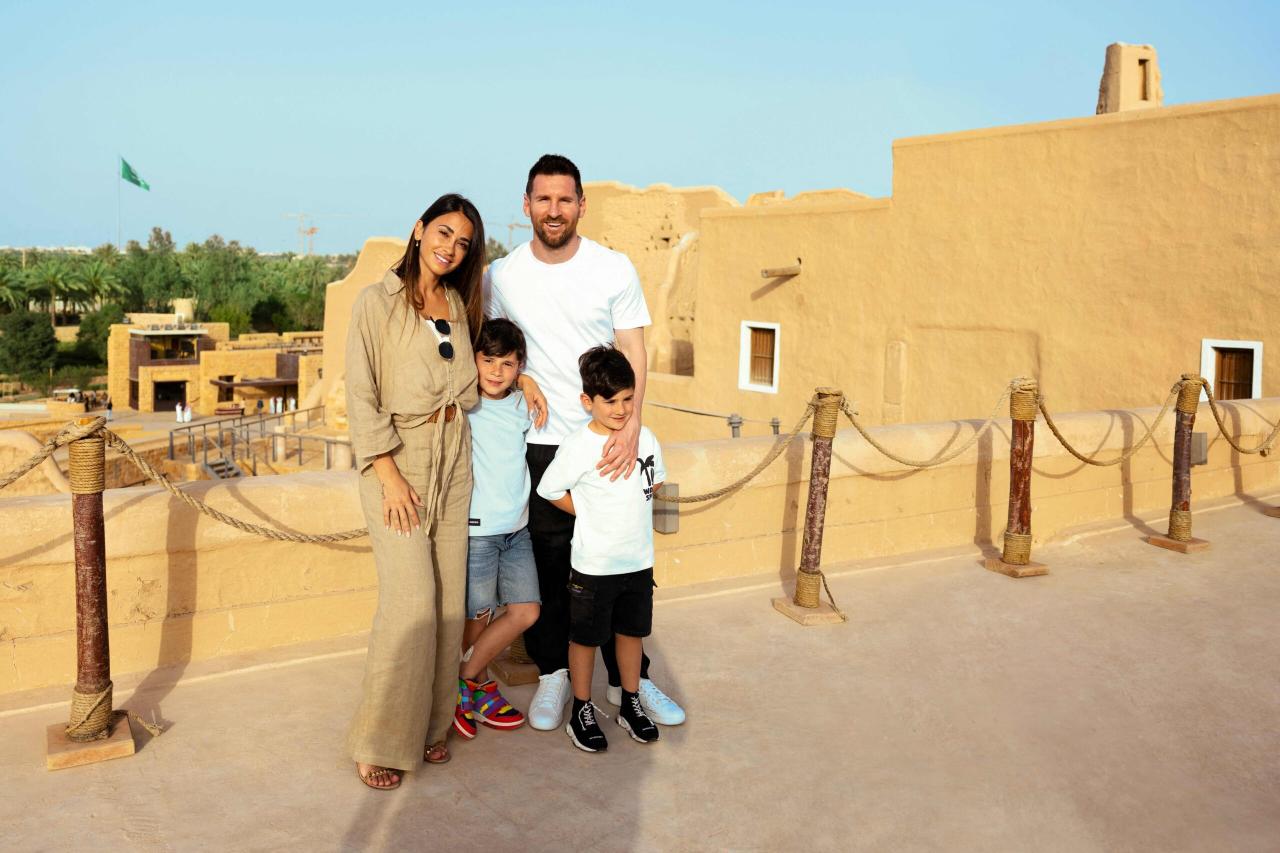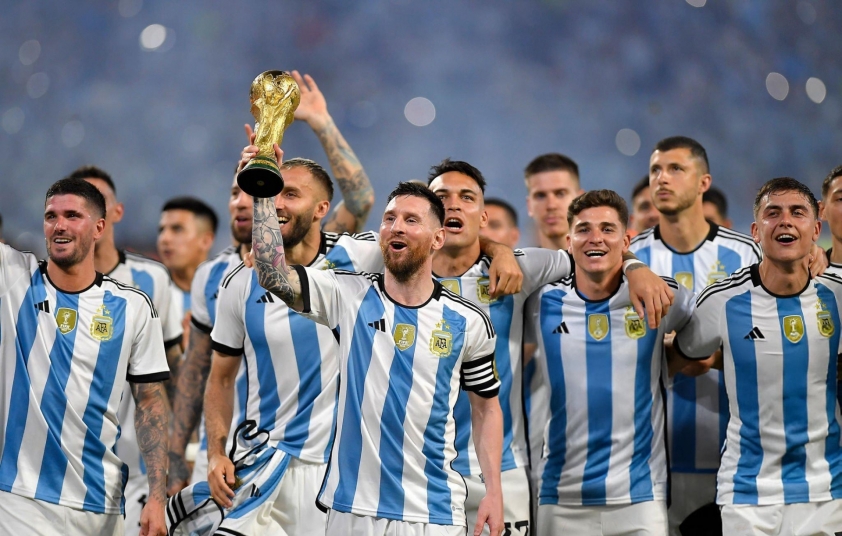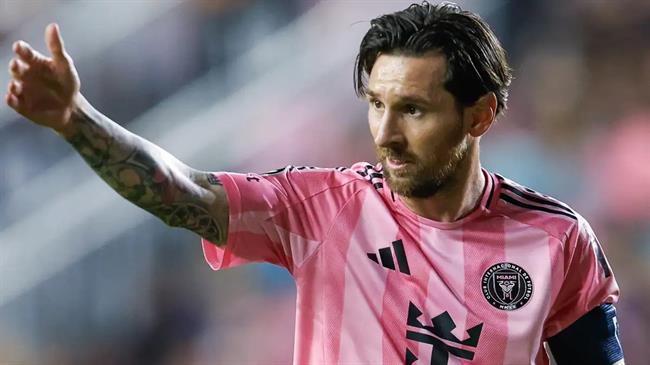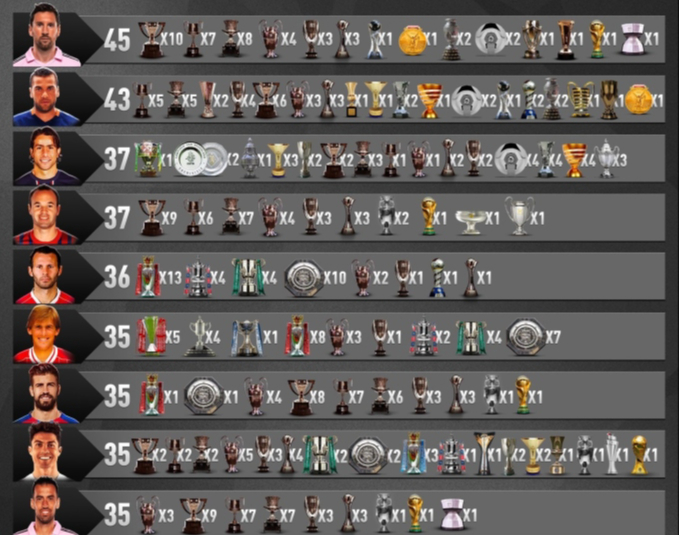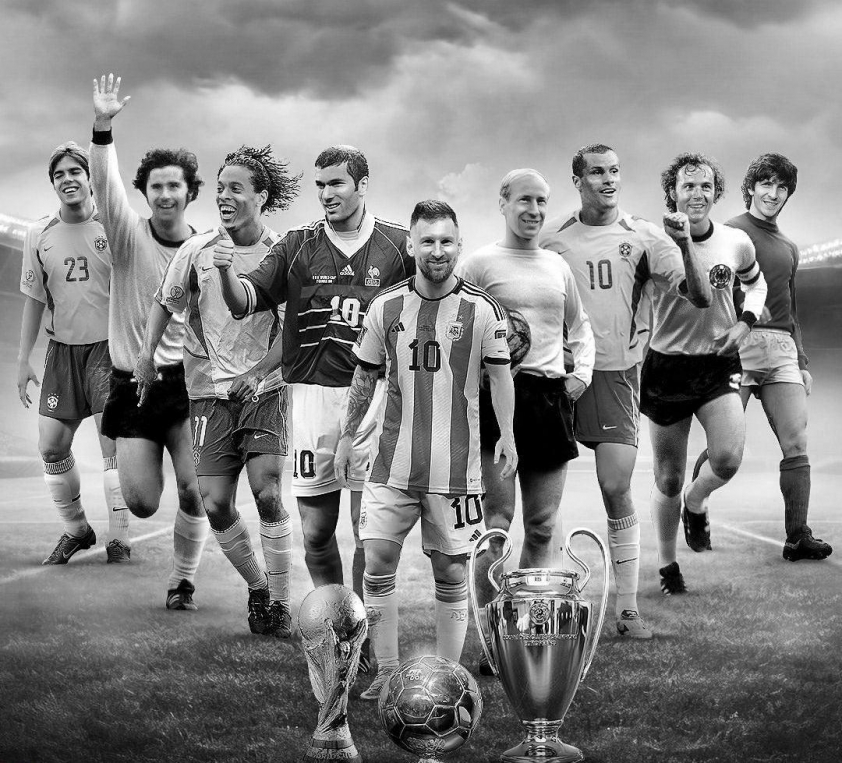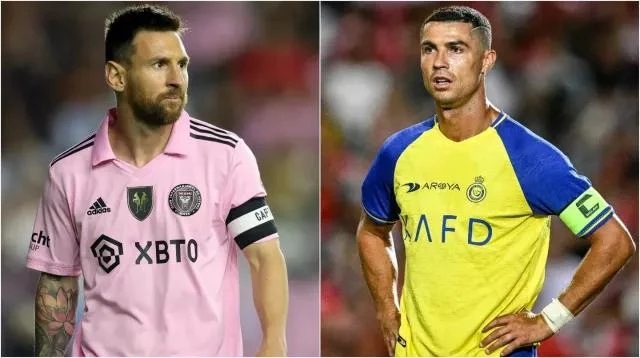
Not so long ago, results like this would have been shocking. Or at least surprising. Lionel Messi and Cristiano Ronaldo, the two brightest stars of their generation, the dominant forces on the pitch for much of this century, both eliminated in the semi-finals of continental tournaments? Both in surprising defeats? On the same day?
On Wednesday, it really happened. Messi’s Inter Miami lost 5-1 on aggregate to the Vancouver Whitecaps in the CONCACAF Champions Cup, and Ronaldo’s Al-Nassr lost 3-2 to Kawasaki Frontale in the AFC Champions League Elite on neutral ground. Both teams entered the season hoping for revenge after missing out on continental glory last season. Both got off to excellent starts. But both fell to lesser-known teams, playing far from home.
Focusing on these two players after their defeats is understandable given their stature, but it’s also unfair to their opponents. The Vancouver Whitecaps, for example, deserve a lot of credit for their success. The Canadians have been the best team in MLS this year, rising to the top of the standings and now making the CONCACAF final with new coach Jesper Sørensen, despite not having many of their former mainstays.
Ryan Gauld, who has been at the heart of much of the Whitecaps’ good work over the past few seasons, has been sidelined for the last few games with a knee injury. Other key players have also been out with injuries or more serious issues. Sørensen has rotated his players to accommodate injuries and balance the demands of domestic and continental competition. Through it all, the Whitecaps have maintained a consistent style of play and an infectious confidence. No one expected the Whitecaps to start the season like this.

“Being the underdog can make things easier,” Sørensen told reporters after the win over Miami. “You can play with more freedom.” Indeed, the Whitecaps completely dominated Miami in both games; the 5-1 aggregate scoreline felt entirely fair. They will be a formidable opponent for whoever they face in the final.
Kawasaki Frontale were similarly underdogs heading into their semi-final against Al-Nassr – a team that not only featured Ronaldo but also Sadio Mané, Jhon Durán, Marcelo Brozović and a host of experienced European veterans. Despite playing on a “neutral” pitch in Saidi Arabia, Kawasaki had to travel further than Vancouver, from Tokyo to Jeddah, where there was a pro-Al-Nassr crowd. Kawasaki were also in the early days of their new coach Shigetoshi Hasebe, who took over after seven successful years under Toru Oniki.
While not as dominant as Vancouver have been in every tournament, the team played with confidence on the big stage, capitalizing on Al-Nassr’s defensive errors after Tatsuya Ito opened the scoring with a beautiful long-range volley. “There were big names playing here,” Ito said after the game. “Before I went out on the pitch, they were standing next to me. It felt like playing a video game.”
In the real-life version of that video game, however, Ronaldo and Messi seem vulnerable, and perhaps, just perhaps, a little helpless. Both retain the competitive streak that propelled them to the top of the game – neither of them is treating the latter stages of their careers as a holiday. But Ronaldo is 40, and Messi is 37, and both are starting to show it. Not necessarily in their running numbers or their pace, but in the crucial moments they sometimes – just sometimes! – miss.
Ronaldo had a chance to score with a trademark header while seemingly floating in the air against Kawasaki, but the ball hit the crossbar. Messi was mesmerising at times as he dribbled past the Whitecaps’ packed defence, but his shots were inches off target.
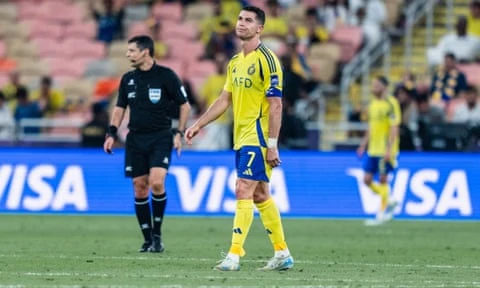
These misses and failures won’t damage any player’s legacy, but it’s hard to ignore the context. On the same day that 17-year-old Lamine Yamal once again looked like he had the world at his feet, Ronaldo and Messi were reminders that time is relentless and irreversible, and that football is not created equal everywhere.
Even at their peak, Messi and Ronaldo did not do it alone. Defensive problems cost both Miami and Al-Nassr in their defeats, in ways that neither striker could do much about. Sergio Ramos was absent in Jeddah, nor Carles Puyol in Fort Lauderdale. The Chase is as far from the Camp Nou as Jeddah is from Madrid and Manchester.
What remains, however, are the crowds of fans, from those filling the King Abdullah Stadium in Jeddah to the kids who accompanied Miami and Vancouver to the game in Florida, all chanting Messi’s name in the tunnel before the game. “Maybe some of the players had posters of him when they were kids,” Sørensen said of Messi. “You have to find a way to play the game your way… You can’t stop players like that. You can only try to limit them.”
On Wednesday, those efforts paid off, and now the two legends appear to have limits that few have seen before.
